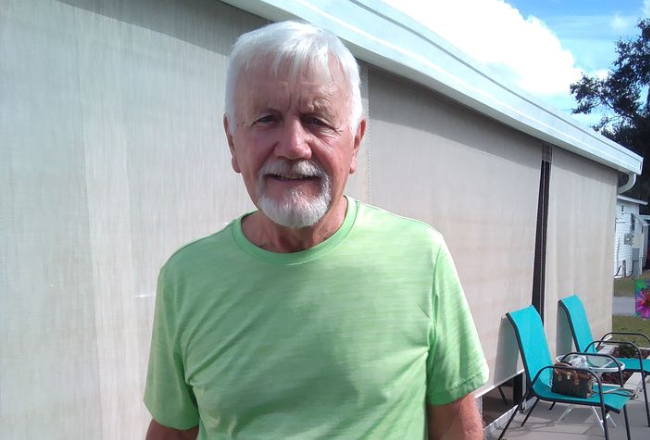
Dave Rigley lies awake—each tick of the clock echoes louder. According to scan after scan, he was perfectly healthy. Yet, he knows it’s there. Growing. Festering. And if he waits long enough, it will kill him.
Born in England, Dave made Canada his home for 42 years. He worked as an engineer for General Motors until retirement. The company emphasized the importance of well-being, prompting Dave to prioritize regular medical check-ups.
During these routine appointments, his doctor noticed his prostate-specific antigen (PSA) levels were climbing. He went to a specialist and further examination confirmed the presence of prostate cancer. The weight of this diagnosis was particularly heavy for Dave, who was all too aware of the grim statistics surrounding this type of cancer.
He was given two options for treatment: surgical prostate removal or Brachytherapy—where radioactive metallic seeds are permanently placed inside the prostate gland. Knowing others who had opted for the latter, Dave chose Brachytherapy. His PSA level eventually went down to 0.034 and he returned to the cancer clinic every three months.
In 2022, a rapid rise in his PSA scores—2.34, then 4.0, then 5.7—sparked alarm. Concerned by the increase, he underwent a bone scan and MRI to investigate.
The bone scan and MRI showed no abnormalities, it appeared Dave was cancer-free. However, it was hard to ignore his troubling blood test results.
Having faced cancer before, Dave knew the odds of recurrence were high. But this time, the threat felt even more daunting.
“How could they treat something they can't even see?” Dave asks.
His Oncologist heard about advanced screening technology known as positron emission tomography (PET) scanning at London Health Sciences Centre (LHSC). Two weeks later, he had an appointment with Dr. Glenn Bauman, a Radiation Oncologist at the Verspeeten Family Cancer Centre. Although PET scans are not widely available in Ontario, Dave met the criteria and was promptly approved. Within three days, he had an appointment at LHSC.
A few days after the scan, Dr. Bauman called Dave to tell him the PET scan revealed the cancer's location. It was undetectable with a bone scan because it was hidden underneath his pelvic bone.
“LHSC treated me very well and they went out of their way to arrange the PET scan,” Dave expresses with gratitude.
He received radiation treatments in Windsor, benefiting from a greater chance of success since the tumour was located. On his last day of radiation, Dave's Oncologist delivered the reassuring news: they had successfully eradicated the cancer.
Dave is overjoyed to report his PSA levels continue to decline. He was once a very active person but unfortunately, his medical problems made it hard to participate in sports. With the support of his wife, Jackie, he is optimistic about returning to his old lifestyle and all the activities he previously enjoyed.
He encourages those in similar situations to see if they are eligible for PET scanning. Dave recognizes that without it, his journey might have taken a much darker turn.
“Think positive and move forward,” he advises, grateful he can laugh about the situation today.
